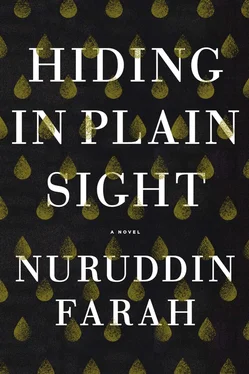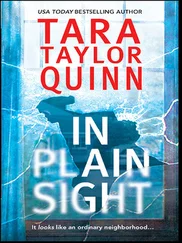“I’ve always dreaded what would become of my body,” Ulrika is saying, and Padmini guesses they are talking about pregnancy. Ulrika tells one story after another, and Padmini has just about fallen asleep when she hears Valerie ask, “An indiscreet question, if I may?”
“Go ahead and ask,” Ulrika tells her.
“Do African women do it too — woman to woman?”
“Of course,” Ulrika answers.
“Who did you have your first experience with?”
“An African girl who was several years older than I–I was nine, she fifteen, and from that day on, I’ve never looked at a boy. In Africa, because no one suspects women to be interested sexually in other women, people leave you alone. The idea of two women doing it is basically alien to African men. But they abhor the idea of men doing it with other men. You can see their disgust in their expressions. And yet I know many African gay men.”
“Maybe it is like the Muslims and drinking.”
“How do you mean?”
Valerie says, “When they come to functions at European embassies where the drinks are flowing, they ask to have their wine and other haram drinks put in coffee mugs so no one can see what they are drinking.”
“But since Allah sees all, why bother?”
“It is for show.”
“You mean saying that we have no gays is for show?”
“That’s what I think.”
“Maybe you are right.”
“Maybe I am.”
Now it is time for Ulrika and Valerie to go to the dance floor. At first Ulrika pulls Valerie close, her hands wandering all over Valerie’s body. But Valerie disengages, and they dance a meter apart. For once, she is doing her best not to upset Padmini.
Something goes wrong with the alarm, which insofar as anyone can tell has gone off for no reason, since no one set it when they turned in for the night. Bella is the first to emerge from her room. Then Salif comes out into the hallway too. “What the hell?” he says. They stand there, Salif in his pajamas, Bella in her robe thrown over a gown she suddenly realizes is missing the top button, listening to the alarm without talking and without the slightest sign of panic. Then, just as mysteriously as it started, it goes off.
Bella says, “What was all that about?”
Salif waits a beat, as if to be sure the alarm is really off, and then he gives a “Search me” shrug of his shoulders.
“Well, what do we do now?” says Bella.
“You want me to go downstairs and check?” Salif looks furtively around and cranes his neck over the top of the banister. “See if there is someone else in the house apart from us?”
Bella says, “Of course there is someone else besides us in this house. There is Dahaba.”
“Nothing wakes her,” says Salif. He picks up the phone and calls out to the cubicle to the right of the gate outside, where the watchmen jabber away in the daytime and sleep at night even though they are supposed to be awake and on guard. When no one answers, Salif says, “I always wonder if there is any point in hiring night guards. They never answer the phone because they are too busy snoring.”
However, as if to prove him wrong, down the stairway they see the moving shadow of a man in uniform outside the front door, and before either of them speaks, they see him waving up to them and then hear his loud banging on the door. Salif goes halfway down the staircase to ascertain that it is one of the night guards, even though he has no intention of opening the door and letting him in. He knows the man by face and name, and they wave to each other. Relieved, Salif rejoins Bella, who tells him, “Go now, check your sister’s room, please, and see if she is asleep, despite so much seismic racket.”
He pushes open the door and vanishes for a few seconds, then reemerges to say, “Why don’t you believe me, Auntie? She is asleep, her head under her pillow.”
“I was hard to awaken too when I was young.”
“She reads till very late. That’s why she can’t wake up.”
“Maybe she finds it difficult to sleep, as I did. I used to read or draw figurines, faces of humans, or animals. I fought with our mum when she came in and turned the lights off.”
Salif stares away in the distance, as if in discomfort. Maybe he doesn’t like her to compare her younger self to Dahaba, Bella thinks.
It’s the sudden silence of the house once the alarm is off that wakes Dahaba, who, rubbing her eyes red, joins them, asking what has happened. Bella and Salif look amused, and Bella says, “Not to worry.” Dahaba and Salif are thirsty and want water to drink, and Bella wants to have tea, so they gather in the kitchen.
Bella asks them about their conversations with their mother the previous day, and Salif tells her about Valerie’s plans to found a trust. Bella knows that Valerie hasn’t the wherewithal to fund a trust, or even to set one up, without Bella’s tacit approval and backing, but knowing that Valerie’s ploy is no real threat, she is sorry that it has backfired on her. How, Bella wonders, can she give the children and their mother a chance to arrive at a rapprochement?
Instantly it comes to her: How about inviting Valerie and Padmini along on an outing to Lake Naivasha today? They’ll stop to have a picnic by the lake, and if there is time, they’ll venture farther up the Rift Valley. Even better if the children are the ones who invite them.
Dahaba is enthused about the plan, but she insists that Salif make the call, not her. After all, it’s Salif who was so rude to Valerie when she called him at their friends’.
“I will do it with pleasure, Auntie,” says Salif, “first thing in the morning.”
It is after three in the morning when they retreat upstairs, and still later when Bella leaves two presents wrapped in pretty paper outside of their bedroom doors. Then she too goes back to bed.
—
The alarm goes off again a couple of hours later, coinciding with the muezzin’s call to prayer. As before, Bella is the first to come out of her bedroom, and once again she is joined by Salif, who, cursing, comes to her aid and turns it off.
Bella says, “We need to have the alarm serviced.”
“I’ll see to that, Auntie.”
“Don’t alarms put the fear of the Almighty into you?”
“No, because I know how to disarm ours.”
“Clever boy,” she says, and she asks if he wants to join her for breakfast. He accepts, and she goes downstairs to get the meal started while he takes a shower and dresses. When he walks into the kitchen after his shower, Salif is carrying the wrapped present. She pretends not to notice it until he sits at the table and unwraps it and exclaims in delight. He walks over to the stove and gives her a hug and a kiss. “How could I have missed this?” he asks. He is effusive in his thanks, although he struggles to find the words with which to express his gratitude.
“You weren’t expecting it.”
“I must’ve been exhausted too.”
“Glad you like it.”
“Am I ready to roll?”
“You are.”
“Is there film in it?”
“Of course.”
“Is it color?”
“There is a roll of color film in it, but I also bought one that is black and white from Nakumatt when I went there for last night’s shop,” Bella says. “I prefer the traditional in most things, and the memory of holding my first camera, putting a roll of film in it, taking photos, and then developing them is indelible. There is something hauntingly beautiful about the process itself: the feel of the photo paper, the smell of the chemicals, the anticipation of the details that will be revealed. There is none of that with the immediacy of digital photography.”
Salif has already aimed the camera at her and begun to take his own pictures of her during this soliloquy, capturing the eyes she narrows as though she were focusing on an unreachably distant image. She is remembering a couple of lines from a Rilke poem — Rilke, who began to mean something to her when she visited the Castello di Duino near Trieste, where she spent three months after Hurdo’s burial in Toronto. Afterward, she’d learned sufficient German that, with the help of an Italian translation, she could read the master’s elegies to that beautiful place. In the poem titled “Turning-Point,” Rilke alludes to the fact that even looking has a boundary and that the world that is looked at so deeply wants to flourish in love, yearns to “do heart-work / on all the images imprisoned within you.”
Читать дальше












